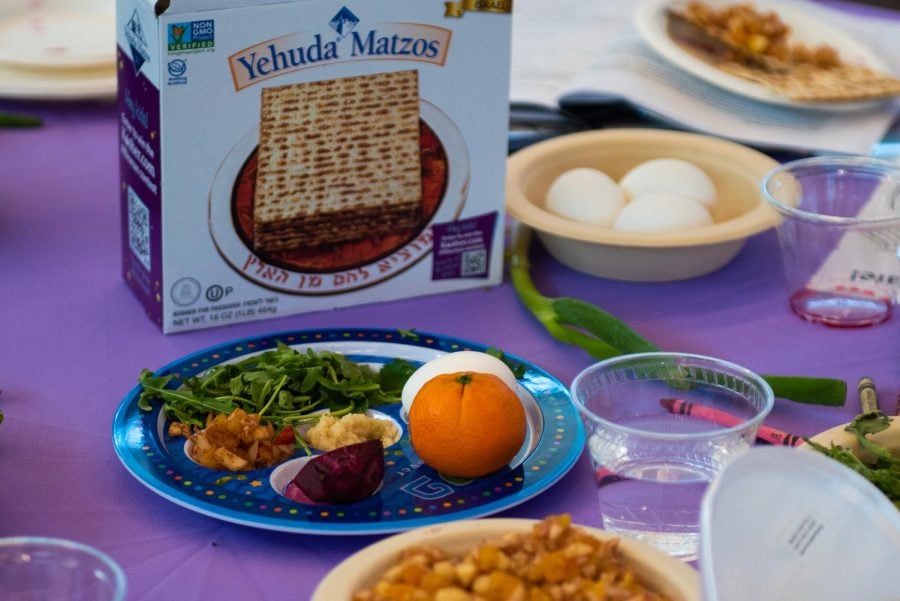Passover seders in Evanston display ‘reform’ and ‘reconstruction’ of traditions for some
Lexi Goldstein/The Daily Northwestern
The addition of an orange on a Passover seder plate symbolizes solidarity with Jewish members of the LGBTQ+ community.
April 16, 2023
Passover, or Pesach in Hebrew, is a Jewish holiday rooted in tradition, repetition and curiosity. Passover seders traditionally bring together family and friends for the retelling and commemoration of the Jewish people achieving liberation from slavery.
Reform Beth Emet the Free Synagogue and the Jewish Reconstructionist Congregation offered Passover services and JRC hosted a family seder.
Evanston resident Carrie Elsberg said Passover is one of her favorite Jewish holidays. The tradition of telling the story every year makes the holiday meaningful for her, she added. Elsberg said that history can guide Jewish people to do good deeds and engage in social justice work.
“It’s a good reminder every year that there are people who are not free, and it is our job as people who can empathize with that to help,” she said.
Despite traditions of a Passover “sēdher,” a Hebrew word which translates to “order,” JRC’s Assistant Rabbi for Education David Eber said the true beauty in the holiday is seen in its connection to modern issues and people’s lives.
“Anything we do in Jewish life, I don’t want it to just feel like ‘let’s do this ancient thing with no relevance to who we are today,’” Eber said.
In recent decades, many Jewish people have opted to “reconstruct” or “reform” the traditional seder plate with a variety of symbolic foods, Eber added. They sought to expand the tradition to reflect more recent movements the Jewish people want to show their support for.
The tradition likely originated in the 1980s with the addition of an orange, representing the unity of the Jewish people with the LGBTQ+ community. Now, some choose to add a banana for refugees, olives for the Palestinian cause or a textual supplement for the Black Lives Matter movement, Eber said.
Further, Elsberg and others have a “Miriam’s cup” with water in addition to the traditional Elijah’s cup with wine to recognize women’s roles in the biblical stories. She said the cup is meant to highlight the stories of women, who are often overlooked.
“Although things have happened in the past, we move forward, we hold things true, but we also evolve,” JRC seder attendee Carla Williams said.
Though Passover is a holiday primarily observed by Jewish people, a few members of the Unitarian Church of Evanston attended JRC’s open Family Passover Seder. The modern Evanston seder aims to be family-friendly; JRC’s family seder featured Passover-related Bingo and coloring activities for kids.
Eber said outside of Hanukkah, Passover is the most popular Jewish holiday.
“It’s hard to not feel the power of a story of a people being oppressed who want to become free,” Eber said. “How can we bring more freedom into the world? How can we bring more justice into the world?”
Email: [email protected]
Twitter: @lexipgoldstein
Related Stories:
— ‘An experience in collective memory’: Students find community in Passover celebrations
— Students participate in Passover seder traditions on campus and at home
— ‘Darkness and hope and light’: Evanston, Chicago Jewish communities unite for Passover 2022


